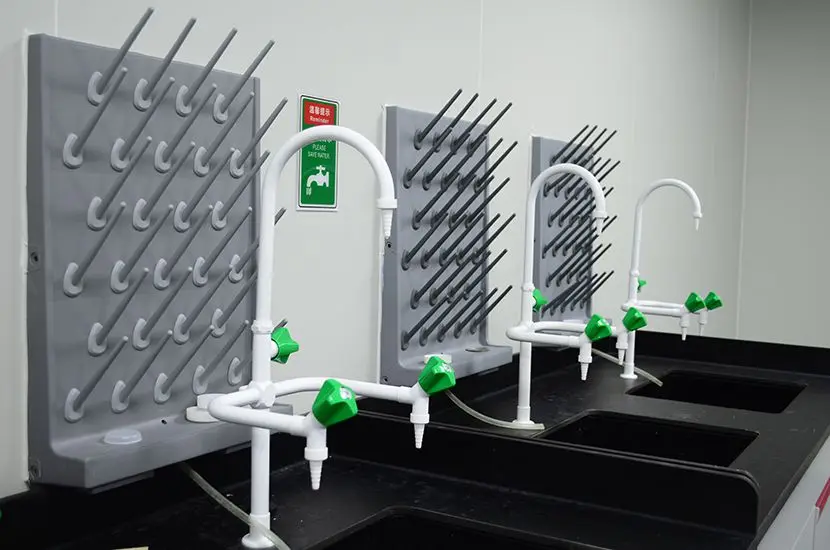
What Does FCC ID Mean?
What is fcc id?
Obtain FCC, CE, and other certifications for your electronic devices
Through our accredited laboratory, you can receive expert assistance in obtaining FCC, CE, and other certifications. We offer services to businesses globally, including in California, helping you conduct FCC, CE, and other certification testing for your electronic devices to ensure smooth compliance with the certification process. We will complete the FCC ID testing within 1-2 weeks and obtain FCC certification within one month, enabling your products to enter the market faster and at a lower cost (we can help you save 30% on certification costs, feel free to compare prices).
What is the meaning of FCC ID?
If you’ve ever looked at the label on an electronic device (such as a smartphone or other mobile device), you may have seen mULtiple FCC IDs. This unique combination of letters and numbers provides an identifier for the device in the FCC database and is crucial for regulatory compliance. For all devices regulated by the Federal Communications Commission (FCC), the FCC ID is an important number, and the law requires devices emitting electromagnetic interference (EMI) to comply with FCC regulations and obtain a unique ID number. You can look up the device’s FCC ID in the FCC’s online database to ensure it meets relevant regulations.
For any device wishing to enter the U.S. market, obtaining an FCC ID is a crucial step in achieving regulatory compliance, especially in accordance with fcc part 15 and other related regulations.
Components of an FCC ID Code
Each FCC ID consists of two parts: the Grantee Code and the Product Code. The Grantee Code is a 3-5 character alphanumeric code assigned by the FCC after the device manufacturer receives approval for the device. The Product Code is a custom code assigned by the manufacturer, up to 14 characters, uniquely identifying a specific product model.
For example, a typical FCC ID might look like “ABC123456,” where “ABC” is the Grantee Code assigned by the FCC and “123456” is the Product Code assigned by the manufacturer.
How to Obtain an FCC ID?
Obtaining an FCC ID for your electronic device is key to achieving fcc compliance and gaining U.S. market access. Here’s a simplified step-by-step guide to obtaining an FCC ID:
1. Determine if your device requires an FCC ID
First, determine whether your device requires an FCC ID. If your device uses radio frequency energy, connects to communication networks, or contains digital components that may interfere with radio or television signals, it likely needs FCC certification.
2. Find the device’s FCC ID
Typically, the FCC ID can be found on the device’s label or packaging, often displayed alongside other markings (e.g., CE logo). If you can’t find it, you can search the FCC website by product model or other information.
3. Familiarize yourself with FCC regulations
Different types of devices must comply with different FCC rules. For example, FCC Part 15 applies to most consumer electronic products, while fcc part 18 governs industrial, scientific, and medical devices. Understanding the applicable rules for your device ensures compliance during the design phase.
4. Test at an accredited laboratory
Before applying for an FCC ID, your device must be tested at an FCC-accredited laboratory to verify compliance with RF exposure, radiation, and other regulatory requirements. As an ANSI-accredited testing laboratory, we can assist you with these tests.
5. Submit your application
After completing the necessary tests, you can submit your application to the FCC via a Telecommunications Certification Body (TCB). Application materials include technical documentation and test reports, and our team can assist in preparing and submitting these documents.
6. Affix the fcc logo and ID on the device
After the application is submitted, the FCC will review your documents. Once approved, you’ll receive an FCC ID, which must be clearly displayed on the device and its packaging along with the FCC logo.
FAQs about FCC ID
Does every electronic device need an FCC ID?
Not all devices require an FCC ID. The FCC regulations state that any device emitting RF energy and intended for sale in the U.S. must have an FCC ID. This includes wireless communication devices like smartphones, Wi-Fi routers, Bluetooth speakers, etc. Some low-power devices may be exempt from this requirement.
How to verify the validity of an FCC ID?
To verify if an FCC ID is valid, visit the FCC’s official website and search for the FCC ID. If valid, the system will display information about the device, confirming that it has passed fcc testing and approval.
Can I use one FCC ID for multiple devices?
No. Each device requires a unique FCC ID. The FCC ID is specific to the tested and certified device model and configuration. Using one device’s FCC ID for another would violate FCC regulations.
JJR, as an ANSI-accredited testing laboratory in China, has assisted hundreds of manufacturers with fcc testing, ensuring their devices meet FCC requirements. We provide full support, from device testing to application submission, to ensure your product successfully obtains FCC certification.
Email:hello@jjrlab.com
Write your message here and send it to us
 Weee authorised representative germany
Weee authorised representative germany
 Where to Apply for 2026 Air & Sea Transport Ce
Where to Apply for 2026 Air & Sea Transport Ce
 Guide to IEC Test Reports for Lighting Exports
Guide to IEC Test Reports for Lighting Exports
 IEC/EN 62471 and IEC/EN 62778 (Photobiological Saf
IEC/EN 62471 and IEC/EN 62778 (Photobiological Saf
 How to get IEC 62471/EN 62471 Test Reports?
How to get IEC 62471/EN 62471 Test Reports?
 IEC 62471 Photobiological Safety Certification
IEC 62471 Photobiological Safety Certification
 EMC Item – Introduction to Radiated Emission Test
EMC Item – Introduction to Radiated Emission Test
 IEC 62471 Photobiological Safety of Lamps and Lamp
IEC 62471 Photobiological Safety of Lamps and Lamp
Leave us a message
24-hour online customer service at any time to respond, so that you worry!




